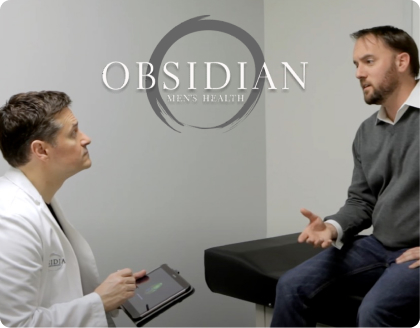As a urologist specializing in men’s sexual health, I frequently encounter patients struggling with erectile dysfunction (ED). This condition affects millions of men worldwide and can significantly impact quality of life and relationships. In this post, we’ll explore the underlying causes of erectile dysfunction, available treatment options, and when it’s time to seek professional help.
Understanding Erectile Dysfunction
Erectile dysfunction is defined as the persistent inability to achieve or maintain an erection sufficient for satisfactory sexual performance. While occasional difficulties with erections are not unusual, ED becomes a concern when it occurs more regularly and begins to interfere with a man’s sex life and overall well-being.
Causes of Erectile Dysfunction
ED can have various underlying causes, both physical and psychological. Understanding these factors is crucial for proper diagnosis and treatment. Urologists are the only medical specialty highly trained in the diagnosis and treatment of ED.
Physical Causes:
- Cardiovascular issues: ED is often an early warning sign of cardiovascular disease. Conditions like atherosclerosis, high blood pressure, and high cholesterol can impair blood flow to the penis.
- Diabetes: Men with diabetes are at higher risk of ED due to nerve damage and reduced blood flow.
- Testosterone deficiency: Low testosterone levels can contribute to ED.
- Neurological disorders: Conditions like multiple sclerosis, Parkinson’s disease, pelvic surgery and spinal cord injuries can affect nerve signals involved in erections.
- Medications: Numerous classes of drugs can cause ED as a side effect. Medications used to treat depression and high blood pressure are just a few examples.
- Lifestyle factors: Smoking, excessive alcohol consumption, drug use, obesity, and lack of physical activity can all contribute to ED.
Psychological Causes:
- Stress and anxiety: Performance anxiety or general stress can interfere with sexual function.
- Depression: This mental health condition often impacts sexual desire and performance.
- Relationship issues: Conflicts with a partner or lack of emotional connection can lead to ED.
- Past sexual trauma: Negative sexual experiences can have lasting effects on sexual function.
Treatments for Erectile Dysfunction
Fortunately, numerous treatment options are available for ED. The choice of treatment depends on the underlying cause, severity of symptoms, and individual preferences.
- Lifestyle modifications: For many men, simple lifestyle changes can improve erectile function. These include exercise, weight loss, tobacco cessation, reduced alcohol consumption, heart healthy dietary interventions and active stress reduction.
- Oral medications: Phosphodiesterase type 5 (PDE5) inhibitors, including sildenafil (Viagra) and tadalafil (Cialis) are the first-line treatment for most men with ED. These medications work by enhancing the effects of nitric oxide, a natural chemical in the body that relaxes muscles in the penis, increasing blood flow and facilitating erections.
- Injection therapy: For men who don’t respond to oral medications, intracavernosal injections can be effective. This involves injecting medication directly into the shaft of the penis to induce an erection.
- Vacuum erection devices: These mechanical devices use vacuum pressure to draw venous blood into the penis, creating an erection that is maintained with a tension ring.
- Hormone therapy: If low testosterone is contributing to ED, hormone replacement therapy may be recommended.
- Shockwave therapy: A newer treatment option, low-intensity extracorporeal shockwave therapy (Li-ESWT) has shown promise in improving erectile function by stimulating the growth of new blood vessels in the penis and improving endothelial function..
- Penile implants: For severe cases of ED that don’t respond to other treatments, surgical implantation of a penile prosthesis can be considered. This involves placing inflatable or malleable rods in the penis to allow for on-demand erections.
- Platelet rich plasma (PRP) injections and stem cell therapy are still investigational and not recommended by the American Urologic Association.
- Psychological counseling: For ED with underlying psychological causes, therapy can be highly effective. This may include individual counseling, couples therapy, or sex therapy.
When to Seek Help
Many men feel embarrassed or reluctant to discuss erectile problems, but it’s important to seek medical evaluation. ED is a medical problem UNTIL proven otherwise. In our experience, most primary care physicians are not skilled enough to properly evaluate men with ED. This is not a knock against our medical colleagues, it’s simply our clinical observation. After all, primary care physicians get little to no training in sexual medicine or andrology.
Urologists are the experts in sexual medicine and male hormones. We are the only medical specialty highly trained in the diagnosis and treatment of sexual dysfunction and ED. Seeking help directly from a urologist is our sincere recommendation. This will avoid unnecessary or a lack of appropriate diagnostic testing and may prevent serious complications.
ED can often be associated with underlying cardiometabolic diseases such as hypertension, insulin resistance, dyslipidemia and vascular disease. A thorough urologic evaluation MUST take place and should include a sexual and medical history, comprehensive physical exam and appropriate diagnostic testing. A high quality urologic evaluation is the best way to identify more serious health issues such as cardiovascular disease when men present with ED.
At Obsidian Mens’ Health, we typically see men who report their ED to their health care provider only to be given a prescription for Viagra. A thorough physical examination and extensive diagnostic testing is almost never done. This is a mistake that can lead to life threatening complications.
Conclusion
Erectile dysfunction is a common and treatable condition that affects men of all ages. While it can be distressing, numerous effective treatments are available. The key is to overcome any embarrassment or hesitation and seek help from an expert in sexual medicine, not just any healthcare “provider” or physician. Urology is the only medical specialty with extensive training in sexual medicine.. With proper diagnosis and treatment, most men can regain excellent sexual function and improve their overall quality of life.
Remember, sexual health is an important part of overall health and well-being so take it very seriously. There is no sex in the graveyard.

